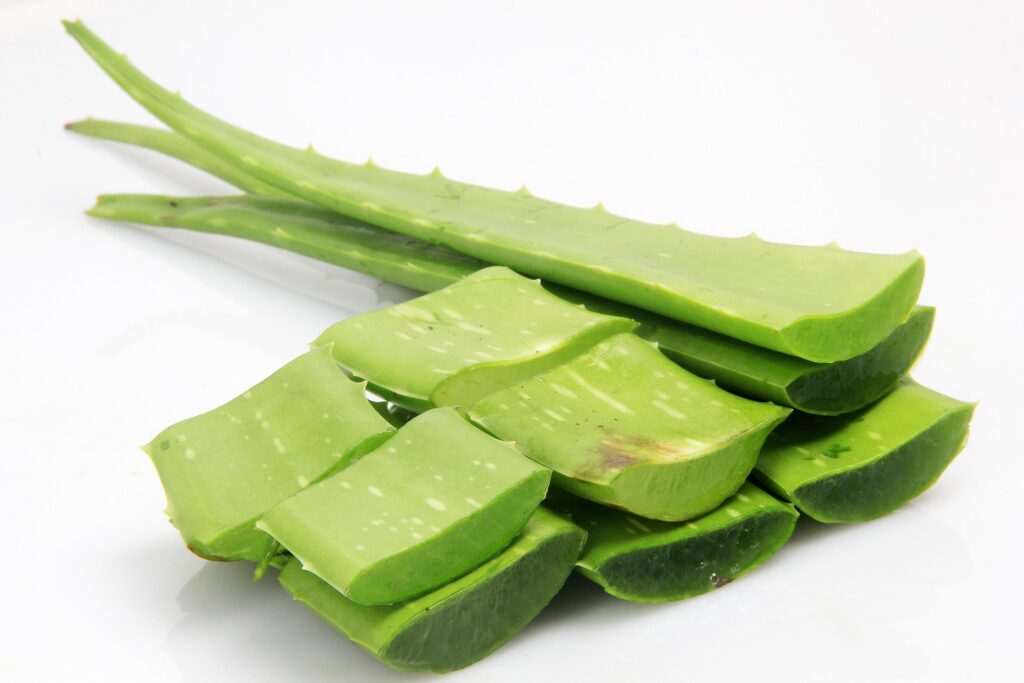
Cardiovascular health has never been a topic of concern since the olden days. Ever wondered if there’s a natural remedy that can help? Well, look no further! Learners unveil the essential role of turmeric in promoting a healthy heart. With its anti-inflammatory properties, turmeric can support heart health by reducing inflammation. It also plays a role in lowering cholesterol levels, regulating blood pressure, preventing blood clots, and promoting arterial health. Discover how turmeric can potentially prevent heart disease and improve your overall cardiovascular well-being.
Key Takeaways
- Turmeric has a positive impact on blood sugar levels and may help regulate blood sugar levels.
- Turmeric improves overall cardiovascular health and lowers the risk of heart disease.
- Turmeric lowers blood pressure levels and has the potential to relax blood vessels and improve blood flow.
- Turmeric plays a significant role in lowering cholesterol levels by reducing LDL cholesterol and increasing HDL cholesterol.
Scientific Studies Supporting Turmeric’s Impact
Before we delve into the specifics of how turmeric can benefit cardiovascular health, it’s crucial to examine the scientific evidence behind these claims. Several studies have shed light on the relationship between turmeric and heart health.
- The Effect of Curcumin on Blood Glucose Levels: A systematic review and meta-analysis showed that curcumin, the active compound in turmeric, can improve insulin sensitivity and reduce insulin resistance, both important factors in managing blood sugar levels and heart health.
1: Marton, L. T., Pesciolini-e-Salzedas, L. M., Camargo, M. E. C., Barbalho, S. M., Haber, J. F. D. S., Sinatora, R. V., Detregiachi, C. R. P., Girio, R. J. S., Buchaim, D. V., & Bueno, P. C. D. S. (2021).
Frontiers | The Effects of Curcumin on Diabetes Mellitus: A Systematic Review (frontiersin.org)
- Curcumin’s Impact on Endothelial Function: Endothelial function plays a vital role in regulating blood flow and clotting. A double-blind, placebo-controlled, randomized clinical trial demonstrated that curcumin can improve endothelial function through its anti-inflammatory and antioxidant properties.
- Turmeric’s Role in Reducing Inflammation and Oxidative Stress: Chronic inflammation and oxidative stress are linked to cardiovascular diseases. Studies have shown that curcumin can lower levels of inflammatory markers in the body and reduce oxidative stress, ultimately promoting heart health.
- Curcumin’s Effect on Cholesterol Levels: Research has indicated that curcumin can lower LDL (bad) cholesterol levels while increasing HDL (good) cholesterol levels. This balance is important for maintaining healthy cholesterol levels and reducing the risk of heart disease.
1: Medical News Today (n.d.) Turmeric for cholesterol: effects and other health benefits Retrieved October 16, 2023, from https://www.medicalnewstoday.com/articles/turmeric-cholesterol 2: Turmeric Component May Help Improve Cholesterol, Lessen Statin Side Effects (2021). UConn Today. Retrieved October 16, 2023, from https://today.uconn.edu/2021/05/turmeric-component-may-help-improve-cholesterol-statin-side-effects/
Now, let’s explore how turmeric’s properties impact cardiovascular health:
Turmeric’s Anti-Inflammatory Properties and Heart Health
Turmeric’s anti-inflammatory properties are pivotal in maintaining heart health. Research demonstrates that curcumin, the active compound in turmeric, can reduce inflammation throughout the cardiovascular system. By reducing inflammation, turmeric has the potential to lower the risk of heart disease and improve overall cardiovascular health.
Scientific studies:
1. Studies have shown that turmeric may help reverse the heart disease process 1
Turmeric Heart Benefits
You can experience significant heart benefits from consuming turmeric due to its powerful anti-inflammatory properties. Turmeric has been found to have a positive impact on blood sugar levels, which is crucial for maintaining a healthy heart. High blood sugar levels can lead to inflammation and damage to the blood vessels, increasing the risk of heart disease. Turmeric’s ability to lower blood sugar levels can help reduce this risk and promote heart health.
In addition to its impact on blood sugar levels, turmeric also plays a role in improving blood circulation. The active compound in turmeric, called curcumin, has been shown to enhance endothelial function, which is responsible for the dilation and constriction of blood vessels. By improving blood vessel function, turmeric can enhance blood flow and reduce the risk of cardiovascular diseases such as hypertension and atherosclerosis.
Incorporating turmeric into your diet, whether through adding it to your meals or taking it as a supplement, can provide significant heart benefits by reducing inflammation, improving blood sugar levels, and enhancing blood circulation.
Scientific studies:
1. Studies have shown that turmeric may help reverse the heart disease process 1
Anti-Inflammatory Effects on Heart
By reducing inflammation, turmeric’s anti-inflammatory properties can have a positive impact on heart health. Chronic inflammation has been linked to the development and progression of cardiovascular diseases, including heart disease and stroke. Turmeric contains a compound called curcumin, which has been shown to possess potent anti-inflammatory properties. Studies have demonstrated that curcumin can help lower levels of inflammatory markers in the body, such as C-reactive protein and interleukin-6. Additionally, curcumin has been found to reduce oxidative stress, which is an imbalance between the production of reactive oxygen species and the body’s ability to detoxify them. Oxidative stress plays a crucial role in the development of heart disease by promoting inflammation and damaging the cells lining the blood vessels. Therefore, consuming turmeric as a part of a balanced diet may help reduce inflammation and oxidative stress, ultimately promoting heart health.
Turmeric and Cardiovascular Health
Including turmeric in your diet can improve cardiovascular health by harnessing its powerful anti-inflammatory properties. Turmeric has been shown to have a positive impact on blood sugar levels, which is crucial for maintaining a healthy heart. High blood sugar levels can lead to inflammation and oxidative stress, both of which are risk factors for cardiovascular diseases. Turmeric’s active compound, curcumin, has been found to improve insulin sensitivity and regulate blood glucose levels, reducing the risk of developing diabetes and its associated complications. Additionally, turmeric plays a role in preventing blood clots, which can block blood flow to the heart and cause a heart attack or stroke. Curcumin inhibits platelet aggregation, reducing the formation of blood clots and maintaining a healthy cardiovascular system. Including turmeric in your diet can be a simple and effective way to support heart health and reduce the risk of cardiovascular diseases.
Turmeric’s Role in Lowering Cholesterol Levels
Turmeric has been found to play a significant role in lowering cholesterol levels, making it a valuable addition to a heart-healthy diet. Research has shown that the active compound in turmeric, known as curcumin, can help reduce levels of LDL cholesterol, also known as “bad” cholesterol, while increasing levels of HDL cholesterol, or “good” cholesterol. By incorporating turmeric into your daily routine, you may be able to support your cardiovascular health and maintain healthy cholesterol levels.
Turmeric and Cholesterol Connection
Lowering cholesterol levels can be achieved with the help of turmeric. Research has shown that turmeric, a spice commonly used in Indian cuisine, has potential health benefits, including its ability to lower cholesterol levels. Turmeric contains a compound called curcumin, which has been found to have cholesterol-lowering properties. Curcumin works by reducing the levels of LDL cholesterol, also known as “bad” cholesterol, in the body. It does this by inhibiting the production of cholesterol in the liver and promoting the excretion of cholesterol from the body. Additionally, turmeric has been found to have anti-inflammatory and antioxidant effects, which can help reduce the risk of heart disease, a condition often associated with high cholesterol levels.
To further understand the potential benefits of turmeric in lowering cholesterol levels, let’s take a look at the following table:
| Turmeric and Cholesterol Connection |
|---|
| Reduces LDL cholesterol |
| Inhibits cholesterol production |
| Promotes cholesterol excretion |
| Anti-inflammatory properties |
| Antioxidant effects |
Benefits of Turmeric
To fully understand the benefits of turmeric in lowering cholesterol levels, you should also consider its ability to improve heart health. Turmeric contains a compound called curcumin, which has been found to have numerous health benefits, including its potential to reduce cholesterol levels. Research studies have shown that curcumin can help lower LDL (bad) cholesterol and triglyceride levels, while increasing HDL (good) cholesterol levels. This is important because high levels of LDL cholesterol and triglycerides can increase the risk of heart disease. Incorporating turmeric into your diet can be done through various turmeric recipes, such as adding it to soups, stews, or smoothies. Additionally, turmeric supplements are available and can be taken as a convenient way to ensure you are getting the recommended daily dosage of curcumin.
Scientific studies:
1. Turmeric for Cholesterol: Benefits, Side Effects, and Preparations (verywellhealth.com)
The Impact of Turmeric on Blood Pressure Regulation

You should pay attention to how turmeric affects the regulation of your blood pressure. Blood pressure management is crucial for maintaining cardiovascular health, and hypertension, or high blood pressure, is a common condition that can lead to serious health complications. Research has shown that turmeric may have a positive impact on blood pressure regulation.
Turmeric contains a compound called curcumin, which has been studied for its potential health benefits. Some studies have suggested that curcumin may help lower blood pressure levels. One study conducted on hypertensive individuals found that taking curcumin supplements for eight weeks significantly reduced both systolic and diastolic blood pressure.
The exact mechanisms by which turmeric and curcumin exert their blood pressure-lowering effects are not fully understood. However, it is believed that curcumin may help relax blood vessels, improve blood flow, and reduce inflammation, all of which can contribute to lower blood pressure levels.
While these findings are promising, more research is needed to fully understand the relationship between turmeric and blood pressure regulation. It is also important to note that turmeric should not replace prescribed medication for hypertension. However, incorporating turmeric into a healthy diet may be a beneficial addition to your blood pressure management strategy. As always, consult with your healthcare provider before making any changes to your treatment plan.
Scientific studies:
1. https://elicit.com/?workflow=table-of-papers&run=d33ef08f-9ee9-484d-9cc9-dd44cc000506
Turmeric as a Natural Blood Thinner and Clot Preventer
Periodically, turmeric exhibits its prowess as a natural blood thinner and clot preventer. Thrombosis, or blood clots, can obstruct blood vessels, leading to severe health complications, such as heart attacks and strokes. Turmeric contains a compound called curcumin, which has been shown to possess antiplatelet properties that inhibit platelet aggregation, a critical process in blood clot formation. By preventing clot formation and promoting blood flow, curcumin reduces the risk of serious cardiovascular complications.
It is important to note that while turmeric may have blood-thinning effects, it is not a substitute for medical treatment and should not be used as a replacement for prescribed blood thinners. If you have any concerns about blood clotting or cardiovascular health, it is essential to consult with a healthcare professional.
Scientific Study:
1. Turmeric to Dissolve Blood Clots | Healthfully
Studies have demonstrated curcumin’s ability to inhibit platelet aggregation, reducing the formation of blood clots.
Turmeric’s Influence on Arterial Health and Function
Regular consumption of turmeric and its active ingredient, curcumin, can profoundly enhance arterial health and function.
Arterial Health
Arterial plaque, composed of fatty deposits that can accumulate within artery walls, restricts blood flow and escalates the risk of cardiovascular ailments. Curcumin, the star player in turmeric, serves as a sentinel, hindering the formation of arterial plaque, thus mitigating the associated complications. Research has also unveiled turmeric’s anti-inflammatory properties, which serve to diminish inflammation within arterial walls. This reduction in chronic inflammation is pivotal in averting arterial diseases.
Scientific studies:
1. https://elicit.com/?workflow=table-of-papers&run=6070ddf2-328e-460f-a66f-ad14c88fa545
The Potential of Turmeric in Preventing Heart Disease

Regularly consuming turmeric can potentially help prevent heart disease. Turmeric contains a compound called curcumin, which has been shown to have various cardiovascular benefits. It has anti-inflammatory, antioxidant, and antiplatelet properties that can contribute to heart health. Research suggests that curcumin can improve endothelial function, reduce blood pressure, and lower cholesterol levels, all of which are important factors in preventing heart disease.
However, it is important to note that while turmeric has potential benefits for heart health, there are also potential risks associated with its use. High doses of turmeric or curcumin supplements may interact with certain medications, such as blood thinners, and can cause gastrointestinal issues. Therefore, it is crucial to consult with a healthcare professional before starting any new supplement regimen.
To help visualize the potential dosage of turmeric, here is a table showcasing the range of turmeric doses commonly used in research studies:
| Dosage Range (per day) | Turmeric Dosage (mg) |
|---|---|
| Low | 500-1000 |
| Medium | 1000-2000 |
| High | 2000-4000 |
| Very High | 4000+ |
It is important to remember that individual needs may vary, and it is advisable to follow the recommended dosage guidelines provided by healthcare professionals or product labels.
Scientific studies:
1. https://elicit.com/?workflow=table-of-papers&run=14d0036b-3fb2-4d33-a488-b2f085c368ba
Frequently Asked Questions
Frequently Asked Questions
1. What is turmeric, and how does it relate to cardiovascular health?
Turmeric is a vibrant yellow spice derived from the root of the Curcuma longa plant. It contains an active compound called curcumin, which has been studied for its potential benefits to cardiovascular health.
2. How does turmeric affect blood sugar levels, and why is it important for heart health?
Turmeric has been associated with improving blood sugar levels by enhancing insulin sensitivity. This is crucial for maintaining a healthy heart, as high blood sugar levels can lead to inflammation and damage to blood vessels, increasing the risk of heart disease.
3. Can turmeric help lower blood pressure, and what is its role in blood vessel function?
Research suggests that turmeric may have a positive impact on blood pressure regulation. It is believed that curcumin, the active compound in turmeric, may relax blood vessels, improve blood flow, and mitigate inflammation, all contributing to lower blood pressure levels.
4. What is the link between turmeric and cholesterol levels, and why is this important for heart health?
Turmeric, particularly its active compound curcumin, has been found to lower LDL (bad) cholesterol levels while increasing HDL (good) cholesterol levels. Maintaining healthy cholesterol levels is crucial for cardiovascular well-being.
5. Can turmeric be used as a natural blood thinner, and how does it prevent blood clots?
Turmeric, through curcumin, exhibits antiplatelet properties that can inhibit platelet aggregation, a key process in blood clot formation. By preventing clot formation and promoting blood flow, it can reduce the risk of serious cardiovascular complications.
6. How does turmeric contribute to arterial health and function, and why is this significant for heart health?
Turmeric has been shown to reduce the buildup of arterial plaque, a major contributor to heart disease. It also possesses anti-inflammatory properties that help reduce inflammation within arterial walls, contributing to better arterial function.
7. Can turmeric help prevent heart disease, and are there any potential risks associated with its use?
Turmeric, with its anti-inflammatory, antioxidant, and antiplatelet properties, has the potential to prevent heart disease. However, it’s essential to exercise caution and seek medical guidance, as high doses or interactions with medications can pose risks.
I hope you find this comprehensive article informative and beneficial for your readers. If you have any further requests or need additional information, please don’t hesitate to ask.
Conclusion
In conclusion, turmeric has proven to be a valuable asset in promoting cardiovascular health. Its anti-inflammatory properties aid in reducing the risk of heart disease by lowering cholesterol levels and regulating blood pressure. Turmeric also acts as a natural blood thinner, preventing the formation of clots. Additionally, it supports arterial health and function, further contributing to overall heart health. With its potential in preventing heart disease, turmeric truly shines as a remarkable and essential ingredient for maintaining a healthy heart.


